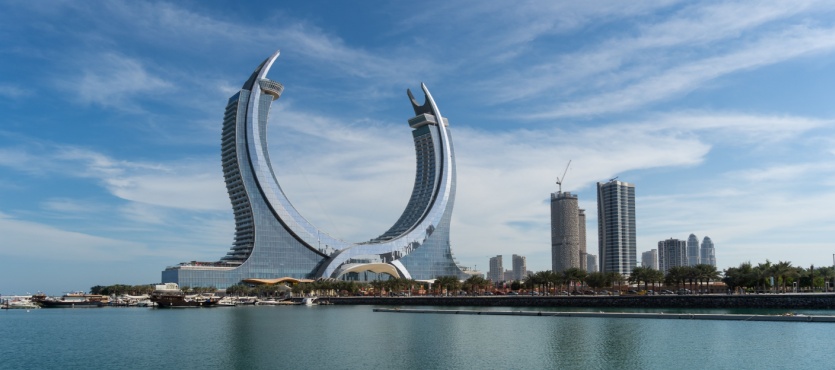In February 2025, incoming Defense Secretary Pete Hegseth had a brief but productive telephone conference with Qatar Deputy Prime Minister and Minister of State for Defense Affairs Sheikh Saoud bin Abdulrahman bin Hassan bin Ali Al Thani, according to a DoD News release.
Secretary of Defense Pete Hegseth and the Qatari Minister of State for Defense Affairs Sheikh Saoud bin Abdulrahman bin Hassan bin Ali Al Thani held an introductory call today to reaffirm the bilateral defense partnership and discuss opportunities to work together in support of regional security. The Secretary thanked Qatar for hosting U.S. and coalition forces at Al Udeid Air Base and urged continued support for Trump Administration efforts to secure the release of the hostages from Gaza.
Qatar and nearby Kuwait may be the most reliable U.S. allies in the region.
The U.S. and Qatar
Trump administration officials obviously want to solidify the relationship between the United States and one of its most important regional allies. Qatar is also an international power broker.
The United States formed diplomatic relations with Qatar on March 19, 1972, when diplomat William Stoltzfus met with Qatari government officials and submitted his credentials. Bilateral relations between the two countries have expanded since the opening of the U.S. embassy in Doha in March of the following year. The first resident U.S. ambassador arrived in July 1974. Qatar and the United States coordinate closely on Middle Eastern regional diplomatic initiatives to increase security in the Persian Gulf.
The two countries also have extensive economic links, especially in the petroleum and other fossil fuels sector. Qatar has also developed international educational institutions in the region to cater to the Middle Eastern market.
Perhaps most significantly for our purposes, Qatar also hosts an American military facility. The Al Udeid Air Base is located west of Doha, Qatar, and is owned by the Qatar Emiri Air Force. It is home to the headquarters of United States Central Command (USCC) and United States Air Force Central Command (USAFCC).
When the war against Afghanistan was at its peak, around 4,000 American soldiers were stationed at this base. Because of this increased use, the Al Udeid Air Base in Qatar underwent expansion so that it can accommodate up to 120 aircraft and 10,000 troops.
In 2003, the residents of this air base increased when the two P-3 Orion maritime patrol aircraft, fourteen RAAF F/A-18 Hornet fighters from the 75SQN, and three C-130 Hercules transport aircraft based there. Initially, the task of the Hornet is to protect and escort the coalitions and give early warnings to the tanker aircraft and AWACS aircraft.
When the Iraq War began, the Hornets, armed with laser-guided bombs, attacked the Iraqi ground forces. On the other hand, the Orions usually had 12-hour missions during nighttime at the Persian Gulf. Finally, the Hercules transports were tasked to transport equipment and supplies to Iraq. They also delivered humanitarian aid to Baghdad.
Contractor Duties
Since the Afghanistan and Iraq Wars are over, the bullets are not flying in Qatar and installations like Al Udeid are relatively quiet. But hostilities could break out any time in the unstable Middle East, most likely with neighborhood bully Iran. If the bullets start flying in Iran, contractors will almost certainly be there.
In quiet war zones, like Qatar, contractors focus on security and construction. There is a reason Qatar is widely regarded as one of the safest countries in the Middle East. Contractors provide constant protection, almost always without firing a shot. The presence of tough-guy contractors usually deters even the most reckless evildoer.
Combat support is the order of the day in active war zones. American PMCs cannot assist offensive operations. But they can and do handle defensive tasks. This activity frees up more resources for offensive operations.
Injury Compensation Available
Whether or not there’s a war, contractors are constantly in danger. When they are injured overseas, a Defense Base Act lawyer obtains compensation for:
- Lost Wages: Most injured contractors receive two-thirds of their AWW (average weekly wage) for the duration of their temporary or permanent disabilities. Significantly, the AWW calculation includes prior and future wages. If Alice was scheduled for a pay bump and her illness or injury causes her to miss that milestone, her AWW must reflect that loss.
- Medical Bills: The DBA also pays all reasonable necessary medical bills. Insurance company lawyers frequently challenge medical bills on the grounds that they are not reasonably necessary. Defense Base Act lawyers often partner with independent doctors during these disputes.
Usually, victims have ten days to report their injuries to their supervisors. Shortly thereafter, a mediator oversees a settlement conference. However, since this settlement conference is based on a paper review, fair settlements are rare.
Furthermore, at a settlement conference, insurance company lawyers do whatever it takes to reduce or deny compensation.
AWW miscalculations are very common. As mentioned, the AWW must account for future as well as prior wages. As for medical bills, many insurance adjusters wrongfully believe that “reasonably necessary” is synonymous with “cheapest available.”
Therefore, most DBA cases are resolved at or shortly before an Administrative Law Judge appeal hearing.
For more information about DBA eligibility, contact Barnett, Lerner, Karsen, Frankel & Castro, P.A.

